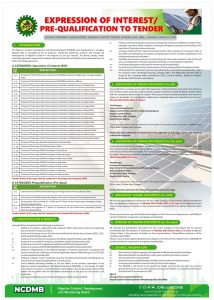August 15, (THEWILL) – The Nigeria Customs Service (NCS) has unveiled guidelines for a 150-day tariff exemption on specific staple food items.
This follows President Bola Tinubu’s approval of a ‘zero tariff’ policy on some imported foods.
In a statement on Wednesday, Customs spokesperson, Abdullahi Maiwada, said the move is intended to alleviate the soaring prices of food commodities in the country.
The exempted items include brown rice, sorghum, millet, maize, wheat and beans.
The statement read: “Drawing from the Presidential directives aimed at alleviating the hardship faced by Nigerians due to high prices of essential food items, the Nigeria Customs Service (NCS), is pleased to announce that His Excellency, the President of the Federal Republic of Nigeria, Bola Ahmed Tinubu (GCFR), through the Honourable Minister of Finance and the Coordinating Minister of the Economy, Olawale Edun, has approved the regulation for the implementation of a Zero Percent Duty Rate (0%) and Value Added Tax (VAT) exemption on selected basic food items.
“This measure aims to mitigate the high cost of food items in the Nigerian market by making essential commodities more affordable for citizens.
“The initiative is part of the government’s broader efforts to address food security challenges and ensure that basic foodstuffs are accessible to all Nigerians.
“However, it is important to emphasise that while this temporary measure is intended to address current hardships, it does not undermine the long-term strategies put in place to safeguard local Farmers and protect Manufacturers.
“It is pertinent to note that the implementation of this policy will focus on addressing the national supply gap. To participate in the zero-duty importation of basic food items, a company must be incorporated in Nigeria and have been operational for at least five years. It must have filed annual returns and financial statements and paid taxes and statutory payroll obligations for the past five years.
“Companies importing husked brown rice, grain sorghum, or millet need to own a milling plant with a capacity of at least 100 tons per day, operate for at least four years and have enough farmland for cultivation. Those importing maize, wheat, or beans must be agricultural companies with sufficient farmland or feed mills/agro-processing companies with an out-grower network for cultivation.
“The Federal Ministry of Finance will periodically provide the NCS with a list of importers and their approved quotas to facilitate the importation of these basic food items within the framework of this policy.
“The policy requires that at least 75% of imported items be sold through recognised commodities exchanges, with all transactions and storage recorded.
“Companies must keep comprehensive records of all related activities, which the government can request for compliance verification. If a company fails to meet its obligations under the import authorisation, it will lose all waivers and must pay the applicable VAT, levies and import duties.
“This penalty also applies, if the company exports the imported items in their original or processed form outside Nigeria.”






